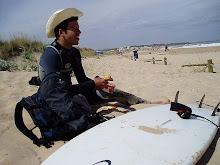"We are on the threshold of a future with unprecedented environmental risks…The combined effects of climate change, resource scarcity, loss of biodiversity and ecosystem resilience at a time of increased demand poses a real threat to humanity's welfare…Such a future generates unacceptable risks that will undermine the resilience of the planet and its inhabitants."
This was a message to the Rio +20 Conference from 40 figures including Nobel chemistry laureate Yuan-Tseh Lee, Brazilian Environment Minister Izabella Monica Vieira Teixeira and Gro Harlem Brundtland, the former Norwegian prime minister who in the 1980s issued a landmark report on sustainable development.
Severn Suzuki, ‘the girl who silenced the world’ with her moving speech in Rio ’92, returns to Rio twenty years later and delivers the following message:
Over the years as I was going these [environmental] conferences, I sensed sustainability was an issue losing traction…and I slowly realized that the top level politicians were not going to change the world for us. I realized that if we wanted to change the world we had to find the solutions ourselves and implement them in our own communities and then go out and demand change from our politicians. I decided to focus on change from the ground up…on citizen engagement.
It is clear that the current global meta-strategy is to change everything from nature into profit at a blistering pace and on a scale and a budget that dwarfs its opposition…we need nothing short of a massive paradigm shift to a strategic way of living that will carry our human race forward to a future with dignity.
I work as a teacher at an international school and a few weeks ago, I had attempted to rally my students to make changes in their own lives and to push for changes at our school that would help the environment. After showing them documentaries and photos, outlining the dangers of the amount of plastic we consume. The pacific trash vortex, how we are destroying our planet,
I challenged them to think of how they could make changes in their own lives for a better world. The changes they came up with were all superficial, demanding little to no effort.
Beside our school’s water fountains there is a plastic cup dispenser. And students get a new plastic cup every time they get a drink of water. I pointed this fact out to my students. They agreed that something should be done, and for a few days tried to at least reuse their cups.
After a week they had returned to using new cups and throwing them away.
I thought that perhaps I should talk to the school administration and make a move to get rid of all the plastic cups. Students would adapt to the change and either bring a water bottle or simply go back to the customary way we drink from water fountains.
In many ways, these kinds of changes are what citizens keep demanding from politicians. Ban plastic bags! Tax high polluting vehicles! Fine those who do not recycle!
But, is this really the best we’ve got? I can go to the school’s administration and get those plastic cups removed. Students will adapt. But when they are faced with a choice, later on in their lives between an eco-friendly option and a non-eco-friendly option, I have done nothing in my role as teacher to inspire them to make an eco-friendly choice.
When these kids grow up to be the world’s lawyers, politicians, doctors, nurses, teachers, businessmen…they will only perpetuate the current dangerous mindset we see in today’s leaders.
Is making going green seem cheap really our only way of getting people to join this cause?
Many of the world’s leaders are not at the Rio+20 conference, some have chosen to stay home or are at the G20 conference in Mexico. Economy triumphs over our saving our home time and time again.
Give up waiting on politicians. For each ‘step forward’ by politicians responding to environmental demands, there are two steps backward somewhere down the line in response to defending business as usual. And should world leaders make changes, they would be in the form of economic incentives to be green (taxes, credits, subsidies, fines). These are only band-aid solutions so long as the population remains uninspired to change themselves and their own communities.
David Suzuki mentioned in a lecture once that it’s as though our society is in a car headed for a collision. The environmentalists are shouting in the back seat point to the brick wall ahead, trying to warn the driver and the others of the impeding danger, but everyone seems unmoved focused only on the piece of road directly ahead of the car.
If we can’t stop the driver, we need to call up friends to go ahead and start building a new car now. From the grassroots, we need to start building a well-designed society where such a collision will never be allowed to occur again.
philbrazil.blogspot.com
Twitter Updates
ShareThisBlog
About Me

- .murph.
- "Don't let schooling get in the way of your education" - Mark Twain
Blog Archive
Powered by Blogger.